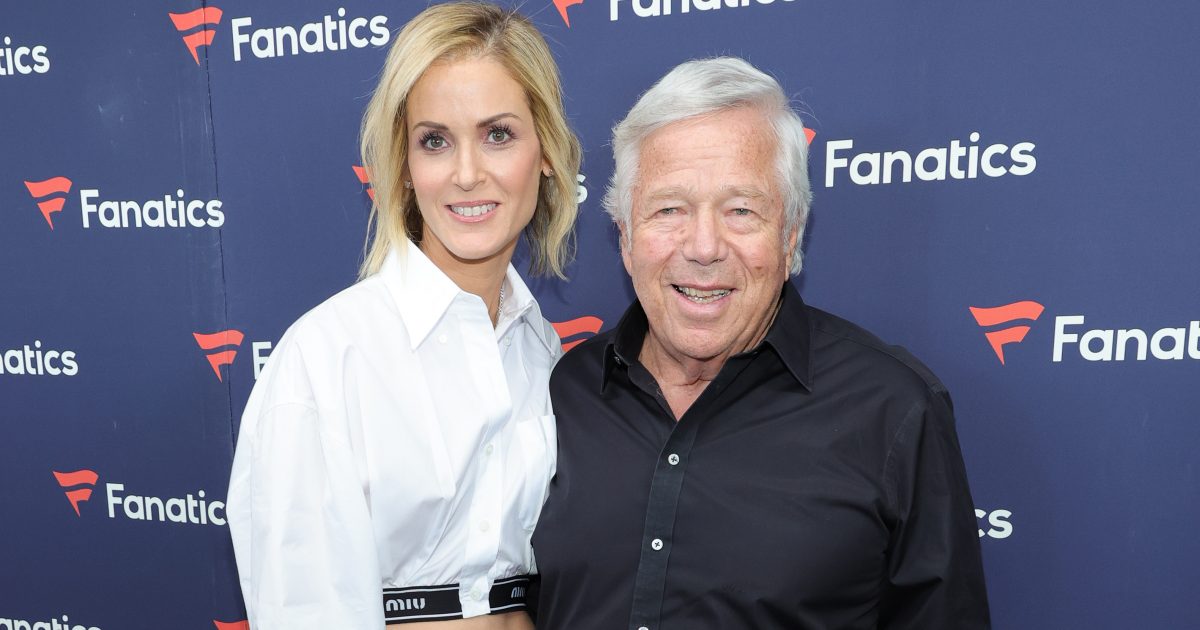Finding Love Again
- Billionaire and New England Patriots CEO Robert Kraft has found love again. Kraft lost his first wife, Myra Hiatt Kraft, to ovarian cancer in 2011.
- Kraft’s engagement to Dr. Dana Blumberg was announced by fashion designer Tommy Hilfiger at a gala held in his honor.
- Myra Kraft was a celebrated philanthropist who took a hands on approach to raising money for medical causes, Jewish organizations, and youth groups.
The betrothal was announced by fashion designer Tommy Hilfiger at a festive gala. Kraft and Dr. Blumberg are believed to have been seeing each other since 2019they first appeared together publicly at the French Open of June 2019.
Read More"I have extraordinary respect for women," he said. "My morals and my soul were shaped by the most wonderful woman, the love of my life, who I was blessed to have as my partner for 50 years."
Myra Hiatt Kraft was known for her philanthropic work, fundraising for medical causes, Jewish organizations, and youth groups. "Never simply a boardroom benefactor," Boston.com wrote in Kraft's obituary, "she staffed phone banks for fund-raising drives and made persuasive calls when a cause needed the financial boost only the rich can provide."
Massachusetts Governor Deval Patrick called Mrs. Kraft "a pillar of our community and a beloved friend." A statement released by the New England Patriots said, "The global philanthropic community and the New England Patriots family have suffered a great loss."
Robert Kraft's recent affiancing helps us see that even if we can't always escape a loss due to cancer, sometimes we can build new relationship and find new sources of strength. Remarrying does not necessarily mean moving on, but it is a big step toward moving forward.
What Is Grief?
The American Cancer Society emphasizes that grieving the loss of a loved one is a process, and it is a process that can take a long time. It is also a process that can look very different for different people.
In a previous interview with SurvivorNet, Dr. Marianna Strongin discussed the variability of the grieving process. She described the five commonly-discussed stages of grief (including denial, anger, bargaining, depression and acceptance) as "tools to help us frame and identify what you may be feeling." These stages can help us understand what we are going through, but it is important to acknowledge that "they are not linear and can occur in a variety of ways," Dr. Strongin said.
Losing a Loved-One
John Duberstein’s experience of losing his wife, writer Nina Riggs, to metastatic triple negative breast cancer, taught him the importance of acceptance. The few conflicts the couple had while Nina was sick came up because John wanted life to go “back to normal,” he told SurvivorNet. Nina saw things differently: “She wanted to embrace the existence that she had, even before she knew she was going to die imminently. I did not want to talk about what was going to happen with me after Nina died. Nina is the one that really brought it up, she brought it up a number of times."
When Nina did pass away, John realized how important those uncomfortable conversations were for him to move forward. Grieving the loss of a loved one is an inevitably painful process, but understanding that different people experience that pain differently can help you accept your own journey forward.
John Duberstein, who lost his wife to cancer, explains why tough conversations are worth it.
Grief is rarely a "one-and-done" process, many members of the SurvivorNet community have told us; one widower even told us that the idea of "moving on" isn't realistic, or even desired.
"I don't even think I want to move on," Doug Wendt, who lost his wife of 25 years to ovarian cancer, said during a previous interview with SurvivorNet. "But I do want to move forward, and that's an important distinction. I encourage anyone who goes through this journey as a caregiver who then has to face loss to think very carefully about how to move forward."
Contributing: Sydney Schaefer
Learn more about SurvivorNet's rigorous medical review process.


